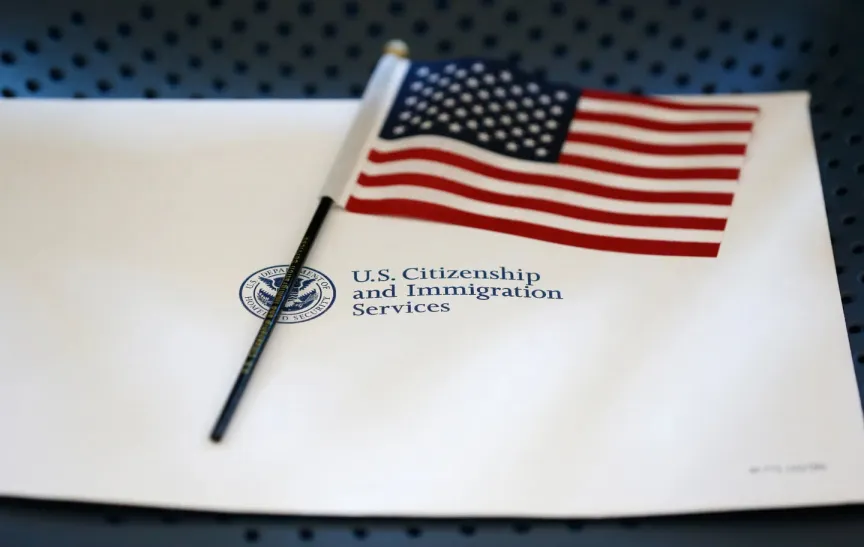In a significant tightening of immigration policies reflecting the Trump administration's priorities concerning national security and ideological purity, the United States Citizenship and Immigration Services (USCIS) announced an update to its guidelines, now requiring consideration of "anti-Americanism" as a key negative factor when evaluating immigration benefits applications. This update, which takes effect immediately, expands social media screening and grants immigration officers broader discretionary power to deny visas, green cards, and other privileges to those they believe promote views hostile to American values.
According to insiders within the Department of Homeland Security, this move is a logical continuation of Trump’s efforts from his first term, when measures such as the ban on entry from Muslim-majority countries aimed at "protecting the American way of life." Now, in 2025, with Trump's return to the White House, the policy has become even more stringent, referencing the Immigration and Nationality Act of 1952, which was historically used to combat communist influences during the Cold War. However, experts note that the lack of a clear definition of "anti-Americanism" — whether it refers to criticism of U.S. foreign policy, support for protests against Israel, or simply disagreement with government institutions — could turn this tool into a subjective weapon reminiscent of the dark days of McCarthyism in the 1950s.
The updated USCIS Policy Manual, published in Volume 1, details the factors officers will consider in discretionary decisions. These include past statements on parole, involvement in terrorist or anti-American organizations, and any evidence of anti-Semitic activity. "American benefits should not be granted to those who disdain the country and promote anti-American ideologies," said USCIS spokesperson Matthew Trageser in a statement that reads like a loyalty manifesto. "Immigration privileges, including the right to live and work in the U.S., remain a privilege, not a right." Trageser emphasized that the agency aims to "eradicate anti-Americanism" through strict vetting procedures, which, according to sources within the agency, include an in-depth analysis of social media to uncover "any signs of hostility towards Americans, their culture, government, or fundamental principles".
This expansion of social media screening, introduced back in June, now covers a broader range of applications, from student visas to EB-5 investor programs. According to USCIS, over 6,000 student visas have already been revoked since the beginning of the year, many of which are suspected of supporting terrorism or ideological violations. For business immigrants, such as EB-5 participants, the update clarifies how discretionary powers will be applied in cases of fraud, deception, or threats to national interests — a domain where, based on my observations, past corruption scandals, such as abuses in "golden visa" programs, have already resulted in thousands of denials.
However, this policy has already sparked criticism from human rights advocates and experts who see it as a threat to freedom of speech and a potential tool for discrimination. Aaron Riehlinn-Melnik, a senior researcher at the American Immigration Council, compared the update to McCarthyism, noting that the term "anti-Americanism" has no precedent in immigration law and could be used to persecute dissenters. "This is a return to an era when fear of the 'red threat' justified witch hunts," he said, referencing historical parallels from the 1950s. Immigration attorney Steven Brown added that the subjectivity of such assessments contradicts principles of fairness, since "American values" are not codified in law. Sociology professor Jane Lillie Lopez warned that the policy opens the door to stereotypes and prejudices, forcing applicants to prove their "loyalty" in a manner reminiscent of totalitarian regimes.
Insiders within Congress indicate that Democrats in the House are already preparing hearings, arguing that such measures could deter talented immigrants who contribute to the U.S. economy — from Silicon Valley tech geniuses to EB-5 investors whose funds finance infrastructure projects. It is estimated that hundreds of thousands of applications could be affected annually, especially from Middle Eastern and Latin American countries where anti-American sentiments often intertwine with local political movements.
While supporters, including Republican legislators, praise the update as a necessary step to protect national identity, critics fear it will turn the immigration system into a tool of ideological control. As a veteran journalist who has covered immigration battles from Obama to Biden, I can say: this is not merely bureaucratic change — it’s a signal about how America defines who is "worthy" of being part of its fabric. In a world where social networks capture every thought, the line between free expression and "anti-Americanism" is becoming ever thinner, and the consequences for global mobility could be profound.


